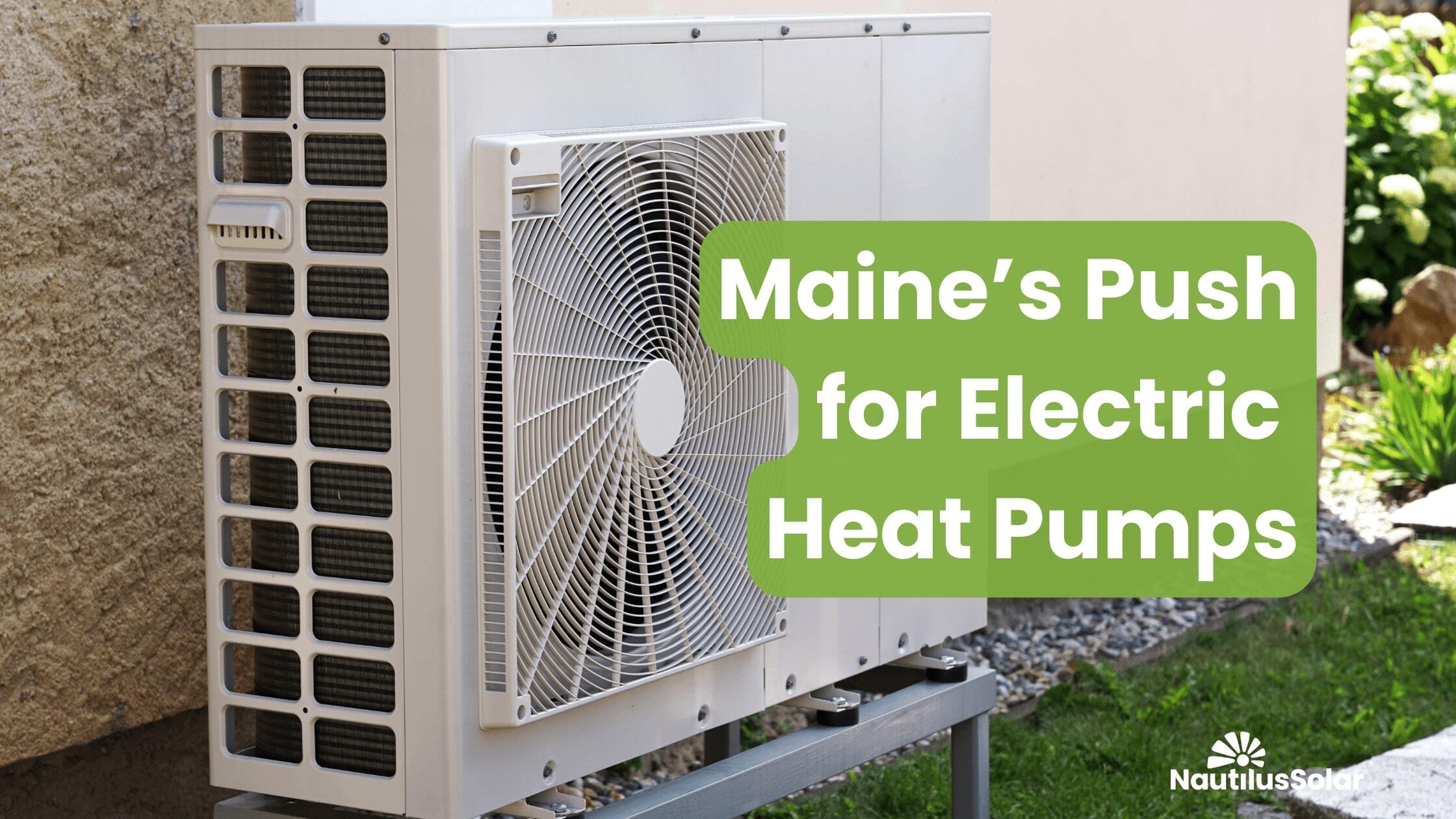The Drive to Electrify
Converting your home to all-electric involves replacing systems that run on fossil fuels (like natural gas, oil, and propane) with those that run on electricity. This shift is significant for several reasons:
- Environmental Impact: Electrification can reduce the carbon footprint of your home, especially when paired with the best renewable energy sources like community solar.
- Energy Efficiency: Electric systems, particularly modern ones like heat pumps, are typically more energy-efficient than their fossil fuel counterparts.
- Economic Benefits: With the introduction of rebates like those in the Inflation Reduction Act, the upfront cost of electric systems is significantly reduced, leading to long-term savings.
The Rise of Heat Pumps: A Pathway to Save on Energy
One technology epitomizing the potential of home electrification is the heat pump. These versatile units can heat and cool your home, offering a cleaner alternative to traditional HVAC systems. Plus, they are a testament to their ability to save on energy. Here's why they're gaining traction:
- Versatility and Efficiency: Heat pumps can be up to three to four times more energy-efficient than traditional electric resistance heaters.
- State-Sponsored Incentives: Subsidies and rebates like those in Maine have made heat pumps an affordable electricity solution for many.
- A Greener Choice: They represent the best renewable energy choice toward reducing greenhouse gas emissions in the residential sector.
Maine's Blueprint for Success
Maine has become a national leader in heat pump adoption. With 1 in 5 new homes featuring a heat pump, Maine serves as a model for other states. The state's initiatives have paved the way for:
- Broad Adoption: State-subsidized heat pumps have allowed more than 100,000 Mainers to benefit from the technology that both warms and cools buildings while slashing greenhouse gas emissions.
- Commercial Uptake: The high adoption rate in both homes and businesses underscores the universal appeal of affordable clean energy.
- Water Heating Revolution: Heat pump water heaters in Maine are becoming the norm rather than the exception. Heat pumps account for two-thirds of all-electric water heaters sold in the Pine Tree State. Nationwide, heat pumps account for only 2% of electric water heater sales.
Understanding Cost Dynamics
The shift towards electrifying homes, particularly with the rising adoption of heat pumps, marks a significant step in the journey toward sustainable living. However, it's important to understand the economic implications of this transition, especially in terms of the cost of going green. The transition to these systems, while beneficial for the environment, does cause a shift in your home’s energy dynamics.
- Increased Electricity Usage: Initially, you may see an increase in electricity consumption. This is because your home's heating, cooling, and possibly hot water supply are now powered by electricity. This transition could result in a higher monthly electricity bill. However, it’s important to note that heat pumps are generally more energy-efficient than traditional heating methods, which can lower some of the increased costs.
- Decreased Fossil Fuel Usage: The most significant advantage is the reduction in fossil fuel consumption. This not only lowers your home’s carbon footprint but also translates into decreased costs associated with fossil fuel energy sources. The reduction in the use of fuels like natural gas, oil, or propane typically results in a lower monthly bill for these utilities, balancing out the overall energy costs.
Community Solar: Powering Pumps Sustainably
Electrifying your home is only as green as the electricity you use. That's where community solar comes in. It's a way for many consumers to enjoy a single, local solar array, reduce reliance on fossil fuels, and save 10% or more on energy costs. This relationship means:
- Cleaner Energy: Heat pumps powered by community solar use the best renewable energy, reducing your home's reliance on the grid and fossil fuels.
- Inclusive Participation: Community solar allows a broader segment of the population to access affordable electricity.
- Energy Independence: Community solar contributes to a more robust and resilient local energy infrastructure.
Taking the Plunge into Electrification
If you're considering electrifying your home, here's what you need to do:
- Assessment: Test your home's current energy usage and infrastructure.
- Planning: Decide which systems to replace (heating, cooling, water heating, etc.) and in what order.
- Research: Investigate local, state, and federal incentives that make adopting the best renewable energy more cost-effective.
- Installation: Choose reliable contractors with experience in installing modern electric systems like heat pumps.
- Pairing with Renewable Sources: Consider how you can pair your new systems with renewable electricity, such as through community solar.
A Greener Home Awaits
The case for home electrification is clear, with benefits ranging from environmental to economic. With the help of policy support and technological advancements, the transition can be smoother and more affordable than ever. As more states look to Maine's example and embrace technologies like heat pumps and community solar, a fully electrified future seems not just possible, but inevitable.


.png)

.png)